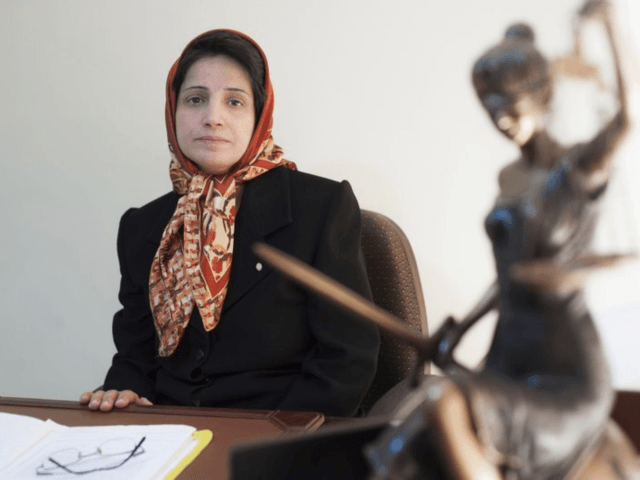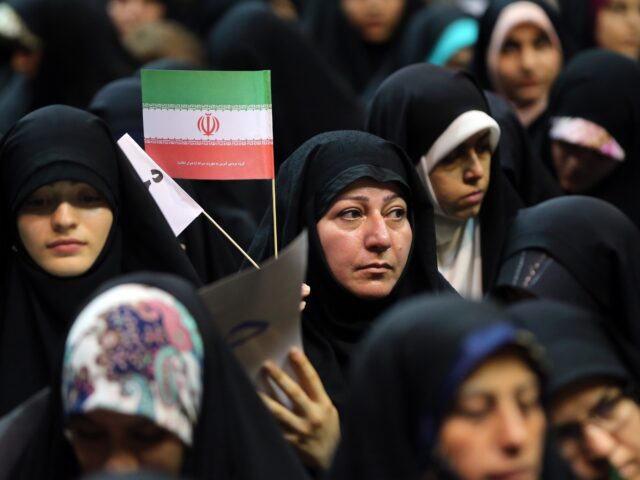Mohammad Saleh Hashemi Golpayegani, head of Iran’s “Headquarters for Promoting Virtues and Preventing Vice,” announced his agency wants to connect facial-recognition computer systems to its extensive network of surveillance cameras to aid in a crackdown on women who defy orders to keep their faces covered in public.
Golpayegani said in an interview quoted by the UK Guardian on Monday that he wants A.I. systems to monitor the feed from security cameras to tighten enforcement of hardline Islamist President Ebrahim Raisi’s August 15 decree tightening restrictions on women’s dress.
July 12 was declared “Hijab and Chastity Day” in Iran, which has mandated heavy clothing and face covering for women ever since the Islamist “revolution” of 1979. The mandates are frequently defied by women’s rights activists, who responded to Hijab and Chastity Day by launching a #Hijab_No_Hijab hashtag on social media and posting photos of themselves uncovered on social media.
“I left the gym and now am going home. The Guidance Patrol van had just arrived at the square. I passed them with no problem. [A person] in a passing car told me to wear a helmet. I have ridden my bicycle on the streets for one-year-and-half, wearing no hat or scarf. I want to be in their face today,” one contributor to the hashtag wrote, adding a photo of herself riding a bicycle without a headscarf.

File/In this Nov. 1, 2008 photo, Iranian human rights lawyer Nasrin Sotoudeh poses for a photograph in her office in Tehran, Iran. On Wednesday, March 6, 2019, Sotoudeh, a prominent human rights lawyer in Iran who defended women protesting against the Islamic Republic’s mandatory headscarf, was convicted and faces years in prison. (AP Photo/Arash Ashourinia)
“I will go out today, and will take action if I see Morality Police detaining anyone in the street, even if no one joins me. I believe this is my duty, and this action will not end today. I cannot decide for others, but I will be grateful to anyone who can help me,” another defiant woman wrote.
The “Guidance Patrol” is Iran’s thuggish “morality police” squad. The Guidance Patrol answered the #Hijab_No_Hijab campaign by posting photos of its enforcers roughing women up and throwing them into vans, so they could be carted off to uncertain fates.
A month later, on August 15, Raisi issued a decree for more vigorous enforcement and steeper penalties for women who defied the hijab laws, including women who post photos of themselves uncovered on social media. Women without head coverings were blocked from entering government buildings and public venues with increasing frequency.

Iranian women chant slogans during an anti-U.S. demonstration outside the former U.S. embassy headquarters in the capital Tehran on May 9, 2018. (ATTA KENARE/AFP via Getty Images)
On August 25, imprisoned Iranian human rights activist Maryam Akbari Monfared, who has been locked up on dubious charges ever since a four-minute “trial” in 2010, was assaulted by prison guards after she objected to putting hijabs on her visiting children. Monfared, who is in poor health after her long incarceration, was reportedly cursed, beaten, and choked by the guards.
Even before Raisi’s latest decree, Golpayegani was enthusiastic about using security cameras to target women who refused to cover themselves. Facial recognition software would tremendously increase the ability of Iran’s morality police to spot uncovered women.
The genocidal Chinese government has pioneered systems that can identify the racial background of people in crowds, such as the oppressed Uyghur Muslims, so tagging women with uncovered faces in crowded venues would be child’s play. For that matter, Iran might be interested in buying the Chinese software that can recognize the faces of oppressed minorities.

COMMENTS
Please let us know if you're having issues with commenting.